Last Updated on November 20, 2023 by Linda Richard
Cheese in general is one of the more talked-about human foods when it comes to giving it to your dog. And then, there’s the question of can dogs eat goat cheese and why it’s controversial? Is goat cheeses better or worse than other types of cheese for our canine friends?
Is it a “better but still bad” kind of situation? And if you do decide to give your pooch some goat cheese what should you keep in mind? Here’s a detailed breakdown of the whole topic.
Table of Contents
Can Dogs Have Goat Cheese?
The question of can dogs have goat cheese will probably never be talked about. The direct answer to it, however, is a yes – dogs can eat goat cheese. But that doesn’t mean it’s healthy and completely safe for your dog.
In fact, a healthy and non-lactose intolerant dog can eat all types of clean cheese (i.e cheeses with no herbs and other additives such as garlic, olives, etc.).
Next, I will tell you the pros and cons of cheese, whether it’s plain goat cheese or soft goat cheese. And give you an idea of which cheeses will be good for dogs and which ones should be avoided.
So, can dogs have goat cheese? Yes, if it is a rare treat and not more than one piece.
Let’s elaborate on the important question – should you give your dog goat cheese or is it better to avoid cheeses altogether?
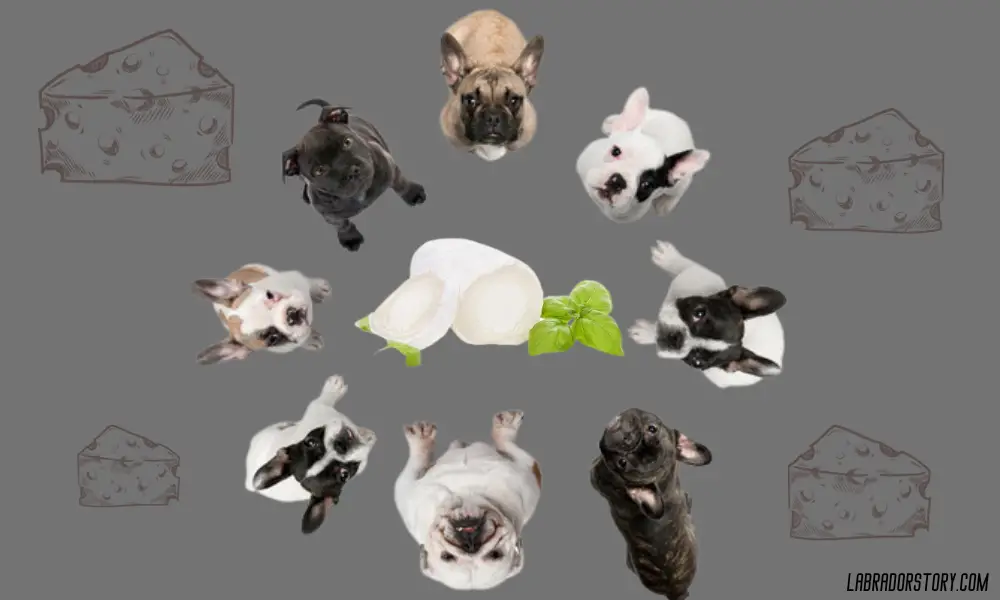
Are There Different Types of Goat Cheese Dogs Tolerate Better?
The dogs eat cheese with great pleasure, and you decided to treat your pet with goat cheese, so which one to choose? Soft goat cheese, low-fat, low-sodium and plain goat cheese is the best option if you do decide to treat your pet. In this case, goat cheese safe for the pet, but give it within reasonable limits.
Goat cheese has lower fat content than most other cheeses anyway which is a big reason why people recommend it. It also has fewer growth hormones compared to cow cheese which is also as good for dogs as it is for people.
Goat cheese is often extra-rich in sodium (salt), however, which is a big No-No for dogs. Sodium-ion poisoning is no joke in canines and salt should be used in moderation. Most experts recommend 0.3% salt to be added to homemade pet food but no more than that. Giving your dog too much salty food can lead to thirst, vomiting, diarrhea, high temperature, tremors, seizures, and then – death.
Of course, it’d be difficult to give your dog that much salty goat cheese. However, if you accidentally leave a big slab of cheese in your dog’s reach or if you give him some cheeses together with some other salty food, problems can follow pretty quickly.
So, if you want to treat your dog with goat cheese, make sure that it’s low on salt as well as low-fat. And, obviously, keep the quantity low and don’t go over a couple or a few small bites.
Read more about Can Dogs Eat Gouda Cheese and Is Cheese Toxic To Them?
Can Dogs Eat Cheese in General?
Generally, yes. Dog loves cheese, most types of cheese are OK for most dogs provided that your dog meets the following prerequisites:
- No lactose intolerance – just like people, some dogs just can’t digest dairy products at all.
- Good health – your dog shouldn’t have any obesity, heart, diabetes, and other general health problems that can be worsened by the consumption of fat-rich food like cheese. Also, the dog’s diet should be nutritionally complete and balanced.
- No digestive issues – cheeses can cause digestive difficulties and diarrhea even in healthy dogs.
- Keep the quantities small – even a healthy dog shouldn’t go over a few bites once every few days.
- Make sure the cheese is low-fat and low-sodium.
- Make sure the cheese is also free of any additives such as garlic, onions, olives, etc. Garlic and onions, in particular, are most toxic foods for dogs.
So, cheese can be an acceptable snack for some dogs. However, it should be a very rare, lucrative, and controlled treat – not something you give your dog willy-nilly.
Are There Types of Cheese That are Better For Your Dog than Goat Cheese?
The best choice for your dog would be a cheese that has the least amount of salt in it, and is low fat in a good way. They are low in salt, lactose and fat, and are packed with nutrients.
The healthiest of these types is of course cottage cheese. Fortunately, there is more good than bad to say about cottage cheese – it is recommended to give it to dogs on a regular basis, especially to puppies or lactating dogs to fill calcium deficiencies and strengthen the musculoskeletal system of four-legged animals.
Any cheeses that have a lot of spices, salt or pepper in them are cheeses that are best not given to your dog. These types of cheeses are digested extremely poorly and can cause digestive problems for your pet. A total ban is also placed on moldy and brine cheeses, as these cheeses can cause intoxication and dehydration in dogs due to their harmful bacteria and high salt content. It is because of the high salt content that goat cheese is included in this list. But as I wrote earlier, if you take low-fat goat fat with low salt content, it is acceptable to give it to your dog as an occasional treat.
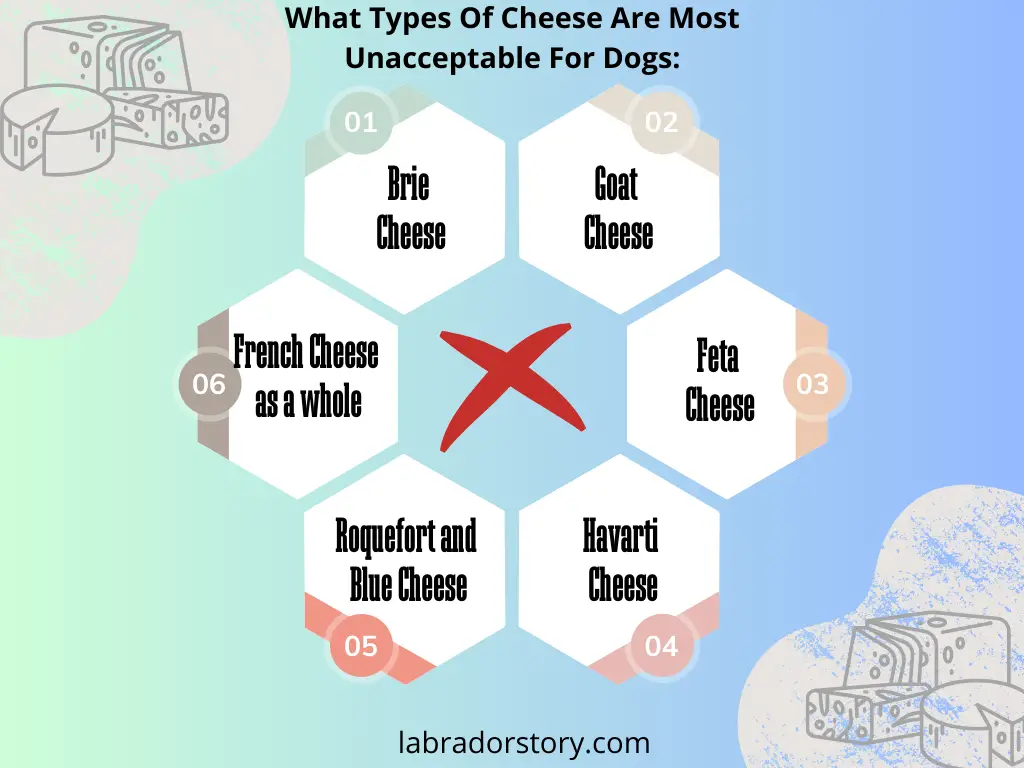
Pros And Cons Of Giving Your Dog Goat Cheese
Pros:
- It’s lower fat than most other cheeses.
- It comes in low-salt variants.
- Goat cheese is often free of any garlic, onions, olives, and other additives.
- It has fewer growth hormones compared to bovine cheeses.
- Dogs don’t seem to mind goat cheese’s strong taste as much as some people do.
- Like other cheeses, goat cheese can be an exceptional training treat or luxury reward treat because of how much dogs love it.
- Cheese is also excellent for hiding pills in – both the consistency and the strong taste will mask most pills without a problem.

Cons:
- Goat cheese may be generally low-fat but that’s just compared to other cheeses – it’s still a cheese so it’s still a relatively high-fat content food. That makes it very ill-advised for regular consumption.
- Even when low on sodium, goat cheese will still have a not-insignificant salt content. This isn’t great for dogs, especially if you give your pet too much.
- Cheeses are one of those foods that can drive some dogs crazy – you must always be careful to keep your cheese away from your dog’s reach if that’s the case.
- Lactose intolerance is a thing in dogs too. If you’re not 100% sure that your dog isn’t lactose intolerant, always start with just a single and very small bite of cheese before offering more. Then, monitor your dog for any symptoms of lactose intolerance such as excessive thirst, diarrhea, vomiting, abdominal pain, toilet accidents indoors, and others.
- All cheeses can cause digestive issues even in healthy dogs.
How to Realize Your Dog is Lactose Intolerant
The way to determine if your dog is lactose intolerant is simple. Just keep a lookout for any of the following symptoms after even just one bite of cheese:
- Vomiting
- Diarrhea
- Bloating
- Intestinal upset
- Loss of appetite
If your dog has any of the symptoms, you should avoid eating cheese.
So, Can Dogs Eat Goat Cheese, And What To Watch Out For?
Dogs eat cheese with great gusto. Dogs can eat goat cheese, and it can be a very good treat for training or as an occasional cheese treats. Goat cheese may be recommended as a dog low fat cheeses. However, the high sodium ( salt) content and makes this type of cheese very dangerous for the dog’s health. Of course, giving your dog a couple pieces of cheese once a week won’t affect his health, but over consumption can cause big problems. Therefore, it is better to use an excellent alternative like cottage cheese, which will only benefit your dog.
It is important to remember: goat cheese, like other types of cheese, is a human food, so giving it to your dog should be done with caution.
Read more about Can Dogs Have Smoked Salmon Or Does It Pose Any Health Risks?
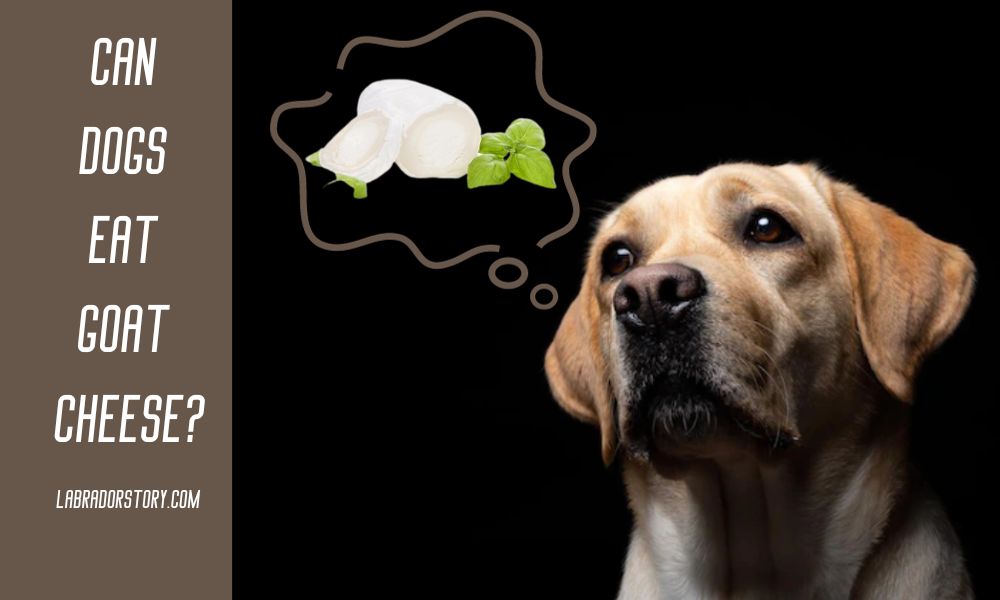
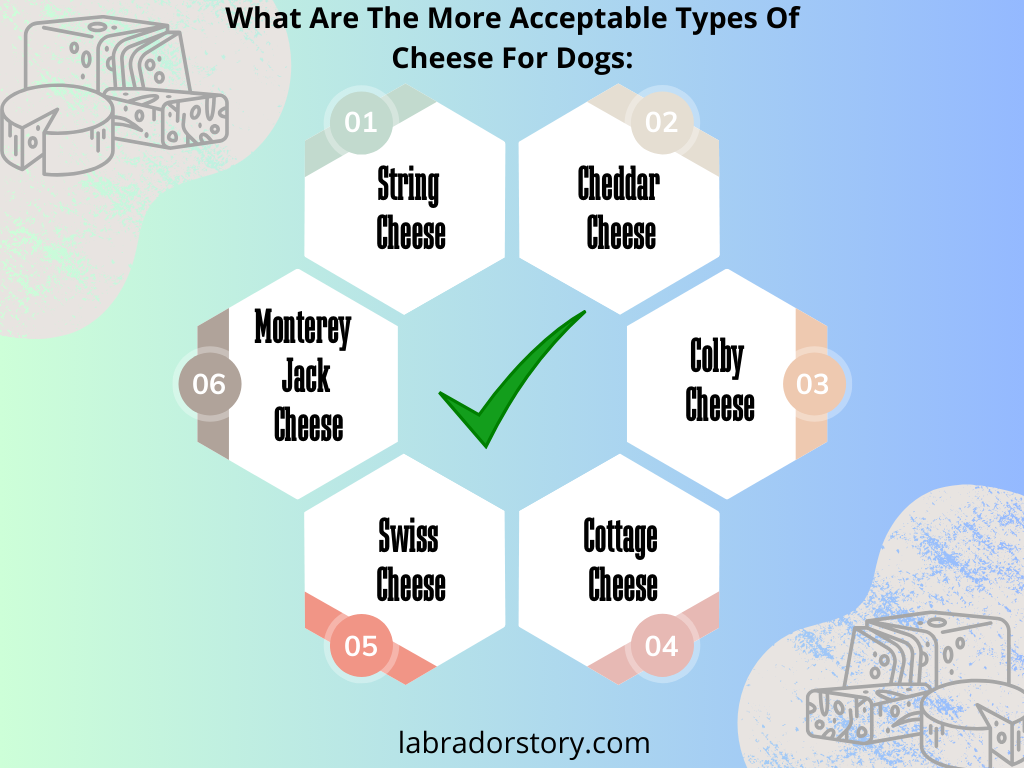
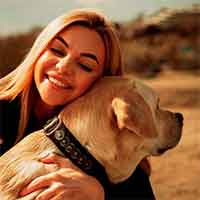

1 thought on “Can Dogs Eat Goat Cheese And Why It’s Controversial?”
Comments are closed.